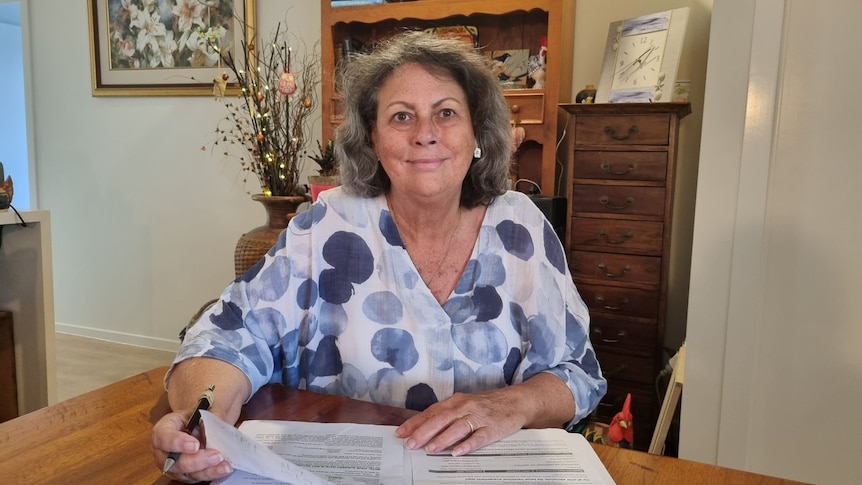Sick or injured Australians may have to pay more in up-front costs at hospitals as patients become a bargaining chip in negotiations between two multi-billion-dollar medical firms.
Key points:
- Bupa and Ramsay Health Care’s dispute could affect 3.9 million Australians
- Bupa customers will likely face higher up-front costs at Ramsay facilities after October 2
- The talks broke down after the two multi-billion-dollar giants failed to agree on a cost increase
Hospital giant Ramsay Health Care formally ended its long-standing deal with private health insurer Bupa and its 3.9 million members on August 2 when the pair failed to agree on hospital costs for patients.
There is now a 60-day window, which expires on October 2, before Bupa customers have to pay more at Ramsay’s 72 private hospitals across the country.
‘I feel sorry for anyone else’
Bupa customer Liz Havriluk from Coolum on Queensland’s Sunshine Coast said she felt lucky her surgery would still be covered.
She just made the company’s deadline for her nasal surgery next month at Sunshine Coast University Private Hospital.
Ms Havriluk said she felt for others who would be left with mounting hospital costs.
“Ramsay hospitals are just about all we have up here, so I feel sorry for anyone else,” she said.
Ramsay Health Care has four of the five major private facilities on the Sunshine Coast, including Noosa Hospital, Caloundra Private Clinic, Selangor Private Hospital at Nambour and Sunshine Coast University Private Hospital.
Ms Havriluk has been a member of Bupa health insurance for 22 years and her partner since 1953.
The pair pay $195 a fortnight for their cover.
GP says patients sold ‘false promise’
Sunshine Coast Local Medical Association president Roger Faint said he was already having to comfort and advise patients in similar situations to Ms Havriluk, who were feeling lost because of the stalemate between the two giant health companies.
Dr Faint said they could need to look further afield.
“It puts them in a difficult financial situation — where there was a certainty there’s now uncertainty,” Dr Faint said.
He said older people would be affected by the fallout.
“These people don’t want to travel to Brisbane, or they can’t travel to Brisbane because transport is difficult and they may or may not have family,” he said.
Dr Faint said patients might not realize they were affected until they became sick or injured.
“And they’ve paid their premiums which are thousands of dollars a year, in some cases for a very long time, then they can’t get the service they thought they were paying for,” he said.
“It’s almost been like a false promise as well, isn’t it?”
Hospital spat will ‘ring alarm bells’
Australia Medical Association president Steve Robson said the dispute would make people question why they should bother with private health cover.
“I think people around the country who have private health insurance are looking at this with some trepidation and saying, ‘Why are we in a situation where our health fund and our hospital can’t agree on things,'” Professor Robson said.
He said hospitals were under pressure with staff shortages and supply issues while insurers spent less because so many surgeries were cancelled.
“I would think there’d be an enormous pressure on Bupa to actually do the right thing by the people who paid them so much money, and for them to have the care that they need,” he said.
“And I think it’s going to ring alarm bells around the country if it’s not resolved quickly.”
In statements, Ramsay Health Care said Bupa’s offer was below inflation and did not cover the increases in its costs.
Bupa said it would not accept a deal that would significantly push up premiums for its members.
Bupa said it would continue to pay some of the costs for care, even at Ramsay, but that the hospital may decide to charge more without a deal in place.
On Friday, Bupa competitor HCF confirmed it had made a five-year deal with Ramsay that “recognizes the increased costs hospitals are facing.”
Ms Havriluk said she was still facing out-of-pocket costs of $2,500 for her September surgery to address her sleep apnea, despite having gold-class membership.
“Bupa only covers only 85 per cent of the very first nasal procedure and then the other side I get 50 per cent, then 25 per cent for a third surgery,” she said.
“When you think about all the money you’ve spent, it’s pretty lousy.”
.
